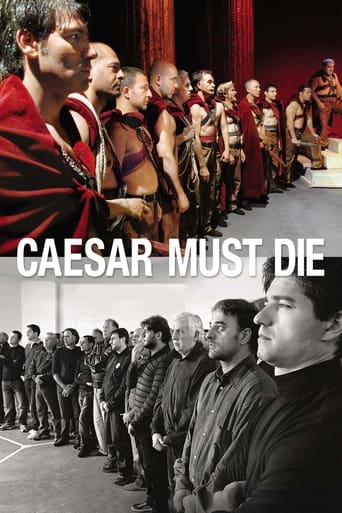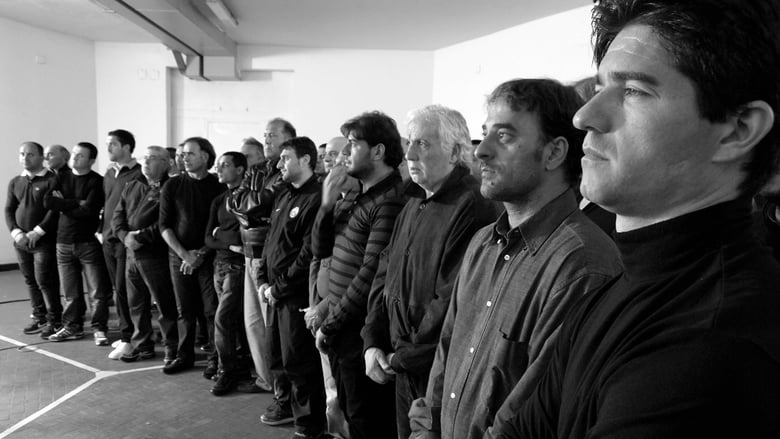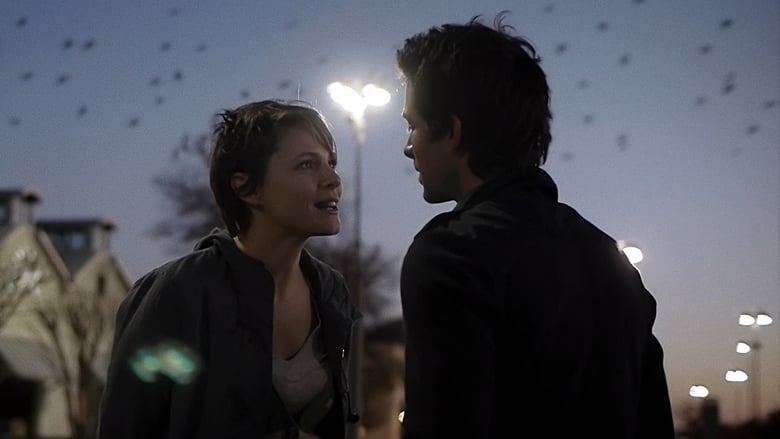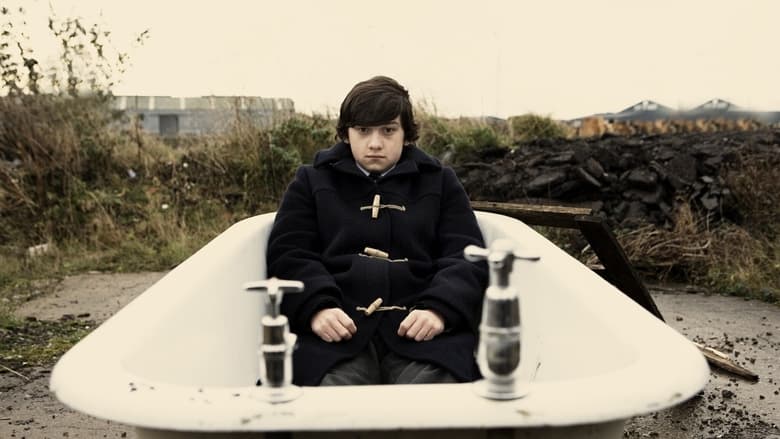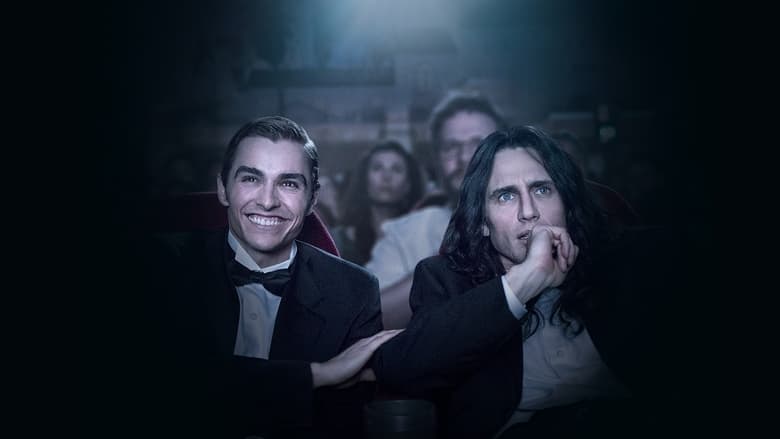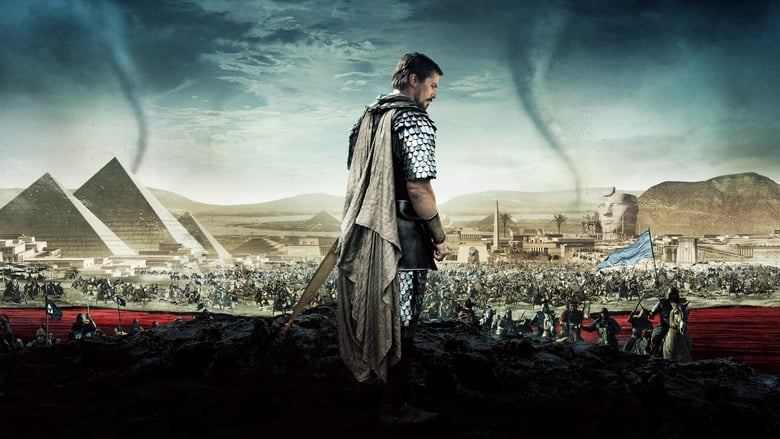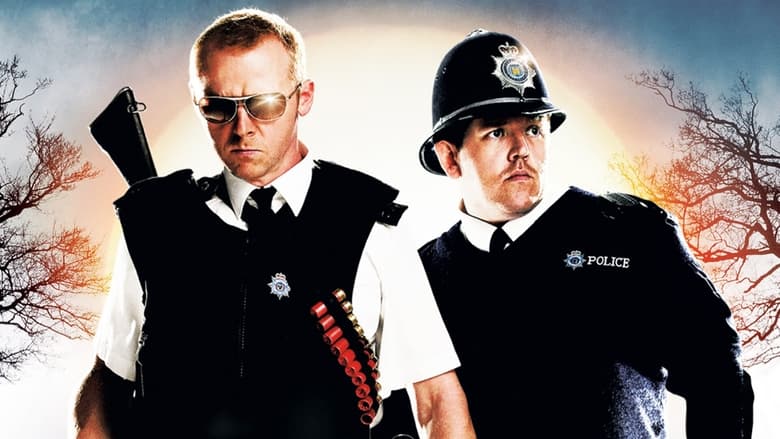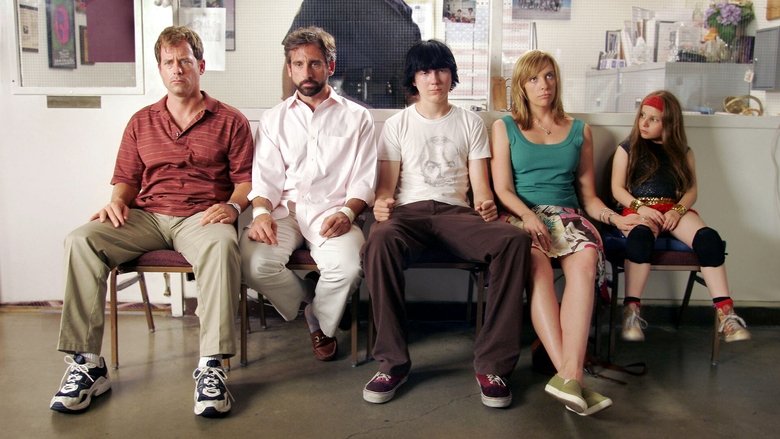Inmates at a prison in Rome rehearse for a performance of Shakespeare's Julius Caesar.


Similar titles

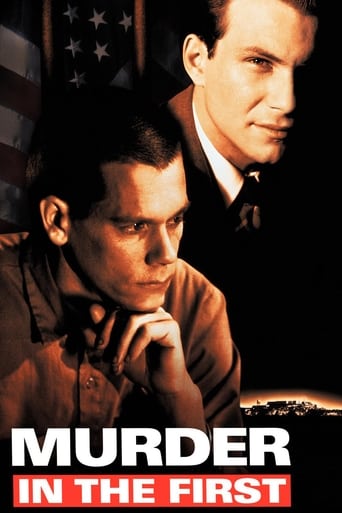
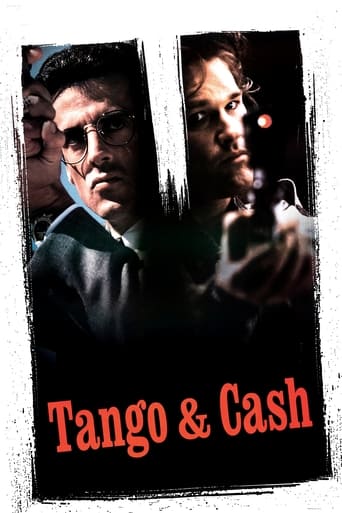
Reviews
Viewed at the Lobero Theatre on January 28, 2013, during the Santa Barbara International Festival at 11:00 A.M. Reviewed by Larry Gleeson. "Caesar Must Die,"a masterful rendition of a filmed play, a narrative and a documentary all seemingly rolled into a one of a kind colossal piece of work in a "quick" seventy-six minutes. The film is directed by the Taviani Brothers who choose to begin the film with what appears to be a filmed play as we see a staged play in color and an up-roaring applauding audience paying great respect to what they've just witnessed. And, just as quickly as the audience applauded, the film cuts to black and white and thus begins the feel of a documentary as we discover what we're seeing are prison inmates going for auditions in a Roman prison.The casting agents request the actors who all seem to e Italians with a natural dramatic flare built into their genetic make-up,to recite personal data – name, birth date and place of birth, pre-incarceration city or town of residence – first emotionally distraught and then again defiantly angry with surprising results of great intensity and with subtle humor. Here overlays provide their convictions and the lengths of their sentences and we become privy to the fact that these are hardened criminals. For those who are familiar with the original "Dirty Dozen" a resemblance can be ascertained. Much like the stockade soldiers being sent behind enemy lines to carry out a dangerous mission, our inmates are volunteering to take part in a pilot program to introduce art into the Roman prison system.Interestingly enough, the theater director allows the men to speak in their native dialect and to find within their respective life experience as common ground with the character they are portraying. The character of Julius Caesar is played by Giovanni Arcuri with swagger and determination. Brutus is played by, in my opinion, the most interesting cast member, Salvatore Striano. Pardoned of his crimes in 2006, Striano took up acting and returned to the prison to participate and work in this production.Furthermore, watching the inmates rehearse and run lines within the prison added an unbefore seen experience of Shakespeare for me. What at first appeared as a lifeless existence being incarcerated, I watched these inmates become re-animated performing daily routines and mundane chores.The reality of the inmates being returned to their cell in the evening and hearing the closing and latching of their cell doors was a powerful reminder of the seriousness of their existence. A telling affect the experience had on the inmates shouts loudly in a mild-mannered tone as the inmate Rega serving a twenty year stretch breaks the fourth wall and comes right into the theater screening stating, "Since I have known art, this cell has become a prison." Indeed, the power of dramatic art to form and shape and experience can be so profound. I took a chance on this viewing with a large group of retired Rhodes scholars and I feel I was handsomely rewarded. Highly recommended to theater and film buffs alike.
The Shakespearean 'All the world's a stage' gets a new meaning with this very interesting and very different film made by the Taviani brother whose actors and heroes are individuals for which the world is the high security prison where many of them are to spend long years paying for serious crimes. Using theater as a mean of therapy end education happens in some of these prisons, now a film not only dares to make this process known and visible outside the perimeter of the prison, but also tries to make of it a work of art. The Golden Bear at the Film Festival in Berlin is a proof that the Taviani brothers succeeded to convince at least the critics and members of the jury. I get the feeling that the larger public was less convinced - it's a very interesting piece of cinema, but not one of these that attracts audiences in numbers. This is not entertainment.In one of the introductory scenes we see a screen test. The actors-to-be are asked to introduce themselves in two situations - a 'soft' family one, and a second which demands them to feel constrained and express rage. Each of them acts with a mix of sincerity and intensity that much exceeds and compensates their lack of professionalism. This is the key of the film. We have already seen theater in theater (Shakespeare himself is the first and maybe greatest master of the genre) and theater about prisons, and many of these were already brought to screen. What we have never seen before is the mix of situations which makes the walls of the prison disappear for the ephemeral moments when the words of the ancient drama become the reality of life for the prisoners acting it.The film asks many questions which arise after the screening ends. Julius Caesar is a play about values - honor, democracy, freedom. How do the prisoners relate to these? The characters of the play are cruel in modern terms, the plot is also about treason and murder - how do these men who have committed serious crimes relate to these deeds? Some of the most interesting moments in the play (and there are only a few of them) are these in which real life (which for the actors is life in prison) interferes in the scenes of the play. I found the smooth, sometimes unobserved, sliding of life in a 21st century prison into the political drama that took place in the first century BC to be terrifying.And then we have the ending. The show is over, it ends in applause and ovations. Then the actors get back to what is their 'home' - the prison where most of them still have to spend many years. What we do understand is that life cannot go on without such a film changing it. The lives of the special actors in this movie, but to some extent the lives of the spectators as well.
Taviani Brothers'2012 Golden Berlin Bear winner, saw the screening in this year's KVIFF, an intensely conceptual piece which recounts a play of "Julius Caesar"done by all-male prisoners. Shot entirely in Black & White, the film generates a certain art form extremity of blurring the boundary between play and film, and takes advantages of the indoor settings (which almost encompasses the entire film except for a few shots), the final result is gratifyingly diverting, both the film and the play-in-the-film. I have only watched one Taviani Brothers' film before, ALLONSANFAN (1974, a 5/10). So I need to do more homework to comment on their style or expound on their near 60 years long walk- of-life. Simply single out this film, its artistic frontier has transcended other peers and condensed into a puristic absorption on the material itself, namely, the characters of the play and the individual prisoners who take on the roles, and strikingly their distinctions and similarities are undone in a yet refrained way. There are affluent theatrical nuisances in the film, although it only runs a scant 76 minutes, the film successfully conveys its ethos and every second counts. Salvatore Striano stars the leading role as Bruto, his rough-edged dedication is imperfect but authentic, other supporters, the stand-outs are Cosimo Rega's Cassio and Juan Dario Bonetti's Decio, but by and large the amateur antics are put into the right place, and the absorbing original score by Giuliano Taviani and Carmelo Travia also lifts the film into a great adaption from Shakespeare's cannon. It's a true blessing to justify the fact that directors could surpass themselves even at their octogenarian years.
After attending the premiere of "Cesare Deve Morire", I was not so sure about the movie. It was a good movie, but somehow essayist, rather loose, not catchy. The outstanding performance of Salvatore Striano (Brutus) was striking and rewarded by the audience. The beautiful composition of black and white pictures was of high aesthetic value. It is a very calm movie, the music is nearly minimalistic. So how come it had a huge impact on me - later? In contrast to most other movies I had seen in Berlin, it was important. Other movies dealt with existentialistic, superficially more important topics than with some prisoners rehearsing a Shakespeare play. Yet "Cesare Deve Morire" had more to say and thus it deserved the Golden Bear. The questions it poses are the same ones as in the Shakespeare play in interrelation with the real destiny of the imprisoned play actors. Even though it is not a particularly spectacular movie, it has the tenor of what makes a strong movie: Importance. The filmmaking is of minor importance, the idea is in the foreground, which is the right decision. The play continues in our minds after the final curtain. Impressive.
